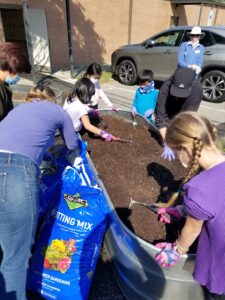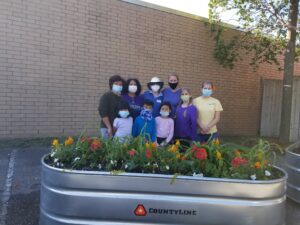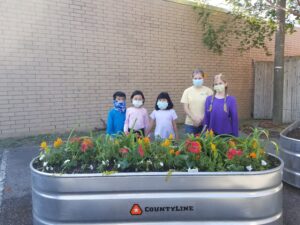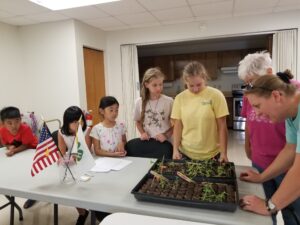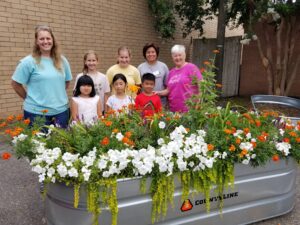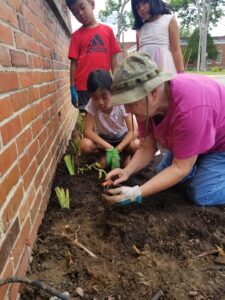Scotland County 4-H Grows Here
go.ncsu.edu/readext?809237
en Español / em Português
El inglés es el idioma de control de esta página. En la medida en que haya algún conflicto entre la traducción al inglés y la traducción, el inglés prevalece.
Al hacer clic en el enlace de traducción se activa un servicio de traducción gratuito para convertir la página al español. Al igual que con cualquier traducción por Internet, la conversión no es sensible al contexto y puede que no traduzca el texto en su significado original. NC State Extension no garantiza la exactitud del texto traducido. Por favor, tenga en cuenta que algunas aplicaciones y/o servicios pueden no funcionar como se espera cuando se traducen.
Português
Inglês é o idioma de controle desta página. Na medida que haja algum conflito entre o texto original em Inglês e a tradução, o Inglês prevalece.
Ao clicar no link de tradução, um serviço gratuito de tradução será ativado para converter a página para o Português. Como em qualquer tradução pela internet, a conversão não é sensivel ao contexto e pode não ocorrer a tradução para o significado orginal. O serviço de Extensão da Carolina do Norte (NC State Extension) não garante a exatidão do texto traduzido. Por favor, observe que algumas funções ou serviços podem não funcionar como esperado após a tradução.
English
English is the controlling language of this page. To the extent there is any conflict between the English text and the translation, English controls.
Clicking on the translation link activates a free translation service to convert the page to Spanish. As with any Internet translation, the conversion is not context-sensitive and may not translate the text to its original meaning. NC State Extension does not guarantee the accuracy of the translated text. Please note that some applications and/or services may not function as expected when translated.
Collapse ▲The Scotland County 4-H gardening club kicked off Earth Day on April 22, 2021, by learning about the importance of nature, and how our day-to-day actions affect the environment. 4-H’s slogan is “learn by doing;” afterward, Lynne Mabry, Scotland Master Gardener assisted the youth in planting an array of flowers at the N.C. Cooperative Extension, Scotland County Center. The flowers included gerberas, marigolds, petunias, salvias, celosias, creeping jenny plants, and more.
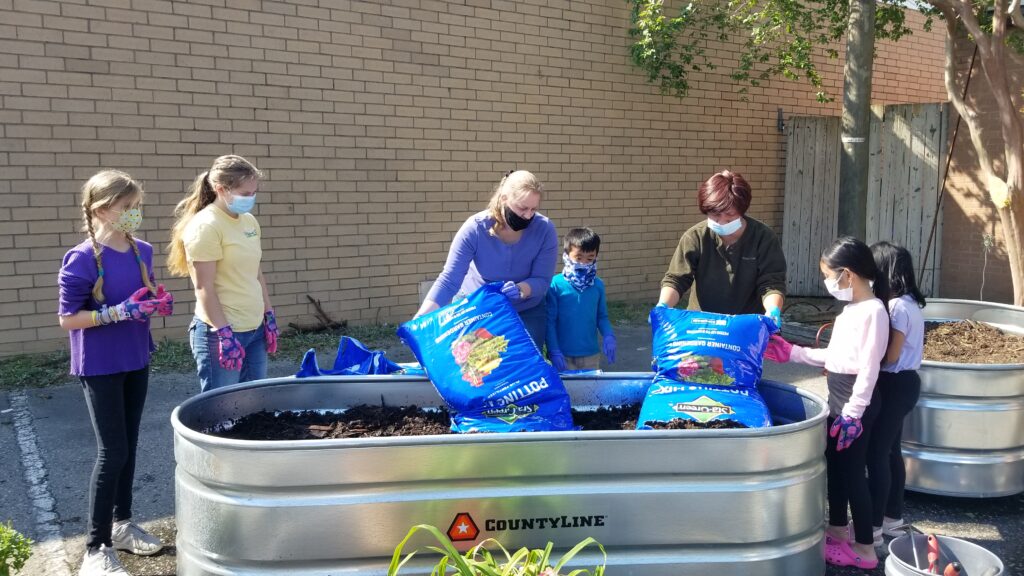
Scotland County 4-Hers and club leaders prepare the bed to plant flowers.
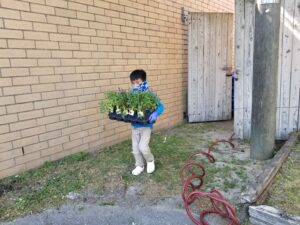
Francis carries salvias to the 4-H flower bed.
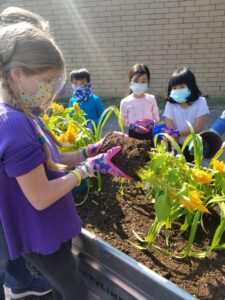
Terralynn preps the roots to be planted.
Monthly, the 4-H club leaders and Scotland Master Gardeners, Linda Edwards and Ng Lee lead the 4-H’ers in fun, hands-on activities of the NC State University’s “Just Grow It” pilot program. The curriculum is an 8-session outline that engages youth in lessons to learn how to plant vegetables, care for and harvest plants to eat. In addition, the youth will explore soil, bugs, plant problems, and more. This program is supported by Scotland County 4-H and an NC State University grant.
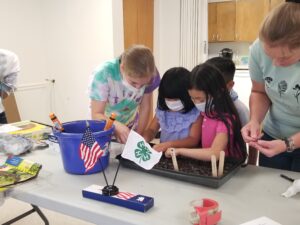
Naomi, Zaria, Elizabeth plant seeds to prepare for the 4-H Community Service Beautification Project.
The 4-H garden club collaborated with the City of Laurinburg to complete a community service beautification project at the corner of Atkinson and Fairley Streets. To prepare for the beautification project, two months ago, the 4-Hers planted seeds of sunflowers and zinnias to give the flowers a jumpstart before adding them to the corner bed. To prep the bed for planting, the youth put on their gardening gloves to remove weeds, grabbed gardening tools, and cleared debris including bottles from the bed. The adults tilled the land to add soil for efficient growing. Bonnie Kelly, a Master Gardener℠ volunteer in Scotland County, and volunteer assisted the youth in planting the flowers and brought irises to accent the edges of the flower bed.
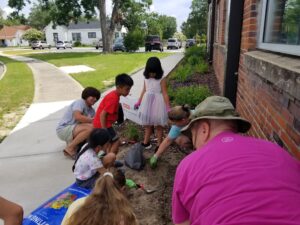
Scotland County 4-H Garden Club prep the garden bed in Downtown Laurinburg to plant a beautification flower garden.

Scotland County 4-H Garden Club prep the garden bed in Downtown Laurinburg to plant a beautification flower garden.
The Scotland 4-H garden club is recruiting new members. The club meets on the second Thursday of each month at 3:30 p.m. at the N.C. Cooperative Extension, Scotland County Center, 231 East Cronly Street, Laurinburg, NC. To join the club and for more information, please contact Angela D. Galloway, Extension Agent of 4-H Youth Development at (910) 277-2422.
4-H is North Carolina’s largest youth development organization, equipping more than 263,000 young people each year with the skills to succeed and improve the world around them. 4-H programs and camps encourage young people to “learn by doing,” helping them to develop into active, contributing citizens. NC State Extension and the Cooperative Extension Program at N.C. A&T State University coordinate 4-H programs statewide.
NC State Extension is the local and statewide outreach provider of North Carolina’s preeminent research enterprise – NC State University. NC State Extension translates research-based knowledge in the areas of agriculture, food and nutrition, and 4-H youth development into everyday solutions that create economic, intellectual, and societal prosperity for North Carolina.
NC State University is committed to positive action to secure equal opportunity and prohibit discrimination and harassment regardless of age, color, disability, family and marital status, gender identity, genetic information, national origin, political beliefs, race, religion, sex (including pregnancy), sexual orientation and veteran status.




